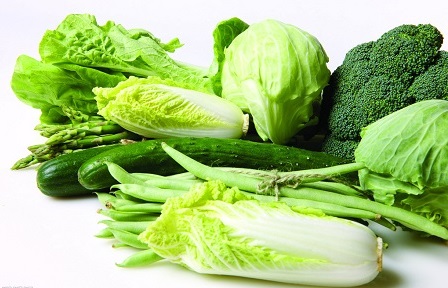Vegetables are an essential source of nutrition for everyone on the table. Its short growth cycle, multiple types, and rich nutrition make it an important part of people's food culture. The use of protected land to produce vegetables (such as greenhouse vegetable production, etc.) makes its production more free and less affected by the natural climate. However, vegetables in protected areas need to be hypertrophic, and the product quality and hygiene requirements are strict. Therefore, for the fertilization of vegetables in protected areas, the experts of Gemba Ecological Planting will introduce the following three principles. The majority of farmers can learn from them: We are a professional Chinese supplier of Spot Removing Material; we supply various products of Freckle Ingredients; and we can providing product images and basic parameters with each Plant Freckle Ingredients , Spot-Fading Ingredients and Body Exfoliants Ingredients. Look forward to your cooperation! Kojic Acid,Beta-arbutin Powder,Placenta Powder,Asiaticoside Powder,Resveratrol Powder Xi'an Quanao Biotech Co., Ltd. , https://www.quanaobiotech.com
2. Balanced fertilization and emphasis on the use of organic and bacterial fertilizers At present, there is a widespread emphasis on nitrogen and phosphate fertilizers, ignoring potash fertilizer, and ignoring the phenomenon of organic fertilizer and trace fertilizer. This makes it impossible for vegetables to absorb nutrients in a balanced manner, which makes it prone to thorny problems. Therefore, achieving a balanced supply of nutrients is also one of the keys to planting vegetables in protected areas. In addition, there is a large variety of organic fertilizers and bacterial fertilizers in the production of protected vegetables, and the effects of some new fertilizers (such as microbial fertilizers) are not clear, so organic fertilizers and fungus fertilizers cannot be used rationally. Based on this, Beijing Huaxia Kangyuan Science and Technology Co., Ltd. experts on the use of fertilizer experts for farmers to use organic fertilizer and biological fertilizer can not start with the following recommendations: Conservation of vegetable cultivation and application of basal fertilizer often use organic fertilizer and mixing 1-2 per acre Kilo gold baby microbial fertilizer (click here) and apply. After the microbial fertilizer is applied to the soil, it can rapidly form a powerful and powerful probiotic group, not only to repair the structure around the soil, but also to activate phosphorus and potash which are difficult to use in the soil, thereby making the land richer in nutrients. In the cultivation of vegetables in protected areas, it is required that the base fertilizer includes all phosphorus fertilizers for vegetable growth, 2/3 of potassium fertilizer, and 1/2 of nitrogen fertilizer. Jinbao microbial fungus is a high-tech product developed from the principles of plant nutrition physiology and rhizosphere soil microecology. The addition of fungicide makes the absorption of some nutrients much easier. The remaining nutrients needed for vegetable growth can be easily achieved by adding inorganic fertilizers during the management process.
3. Fertilization according to the cultivated environment Although the requirements for the natural environment of the cultivated vegetables are reduced, there are still great differences in the management of the protected vegetables in different seasons and regions. This also requires the farmers to apply scientific fertilization according to the specific cultivation environment. . The temperature is suitable, the crop grows vigorously, and the amount of fertilizer required is also large. The greenhouse vegetable has high temperature in October-November and March-April, which is conducive to the decomposition of the fertilizer. At this time, the vegetable grows more vigorously, and more fertilizer can be used. In other low-temperature months, no fertilizers are applied or reduced in greenhouses. If urea is difficult to decompose after use below 12°C, the crop is not easily absorbed. Details can be consulted: Beijing Huaxia Kangyuan Technology Co., Ltd. Telephone toll-free hotline Recommended reading:
Why Plant Roots Are the Main Way for the Function of Microbial Bacteria Fertilizers
How to grow organic spinach effectively